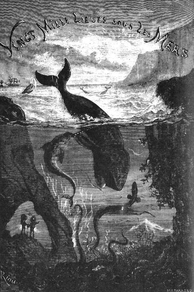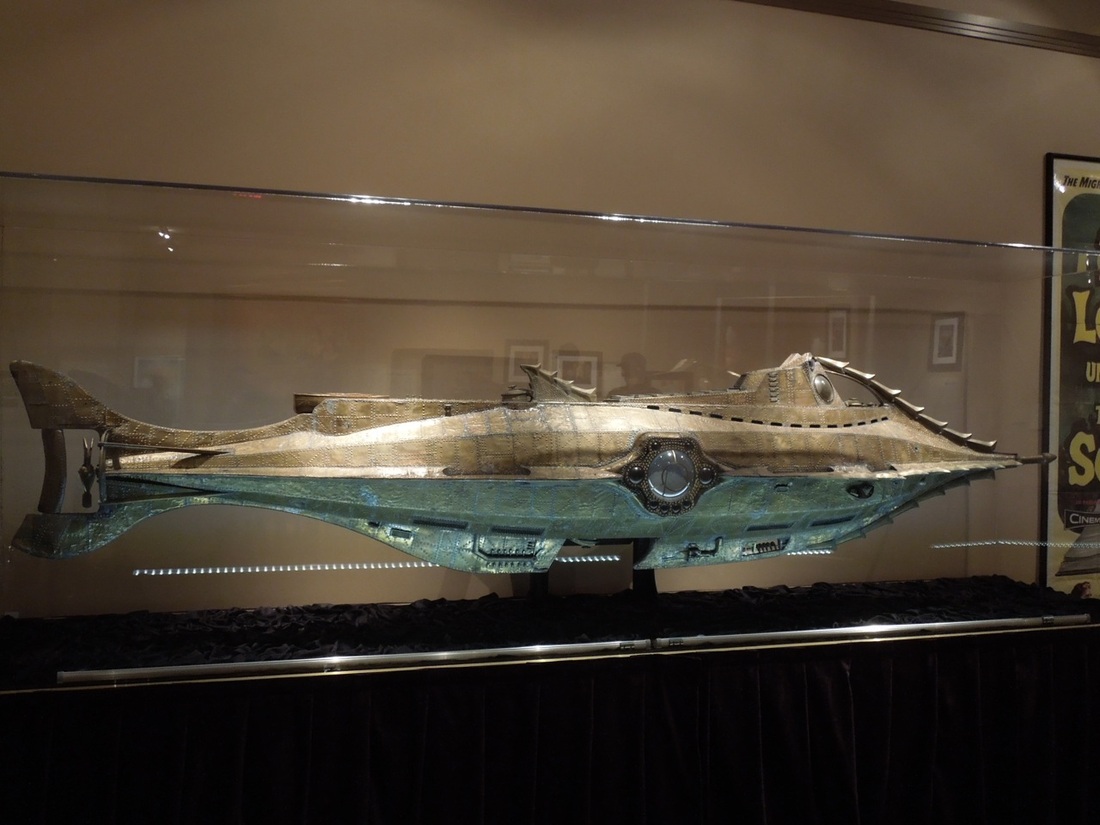|
by Tiffany Citra '17  1 league = 3.452 mi = 5.556 km [image via] 1 league = 3.452 mi = 5.556 km [image via] Often regarded as the father of science fiction, Jules Verne has written a lot of work involving science and technology far ahead of its era. But how exactly accurate is the science portrayed on his writing? Let’s examine the credibility of the assertions Verne makes in one of his most notable books, 20,000 Leagues Under the Sea. The story starts with Professor Pierre Aronnax, who embarks on a mission to hunt down a mysterious “giant narwhal”. However, when he finally comes in contact with his target, his ship can’t resist the “narwhals” strength and eventually falls apart. Luckily, he survives and discovers that the “narwhal” is in fact a submarine. Upon discovering his presence, Nemo – the captain of the submarine, which is known as the Nautilus – brings him into the vessel. Despite being kept as a prisoner, Professor Aronnax is taken on a journey across the sea to explore things not yet discovered by mankind. So how about the science?
Considering the fact that it was published more than 100 years ago, 20,000 Leagues Under the Sea really is an amazing piece of science fiction. Through his revolutionary (though fictional) inventions, Verne pushed science to keep moving forward, and even inspired a number of later scientific advances. His Nautilus inspired the development of the electric submarine. Built in 1885, the Goubet I was the first submarine to be powered electrically [8]. It doesn’t really matter that this book contains a number of errors here and there; it’s called science fiction, after all.
7 Comments
Amanda
1/30/2016 06:32:19 pm
have you since writing this article found any more discrepancies in regard to the plausibility of some physics related concepts found in the novel?
Reply
4/27/2016 07:48:22 am
The professor’s ship was not destroyed, leading to his presence on the Nautilus. It was damaged in a collision and the collision threw him overboard. Because of the damage, the ship could not turn (rudder and propeller smashed), abandoning Aronnax and his companions.
Reply
Jasper
10/25/2016 02:16:24 am
Can an island disappear overnight as Jules Verne opined? Absolutely. We know of two examples for sure -- Santorini and Krakatoa.
Reply
6/17/2018 07:31:57 pm
...and—third—Atlantis...
Reply
Charles J Gervasi
6/11/2024 11:25:34 am
I am half way through the book. I started wondering which things in the book are possible, and I found this page. Thanks for doing it.
Reply
Leave a Reply. |

